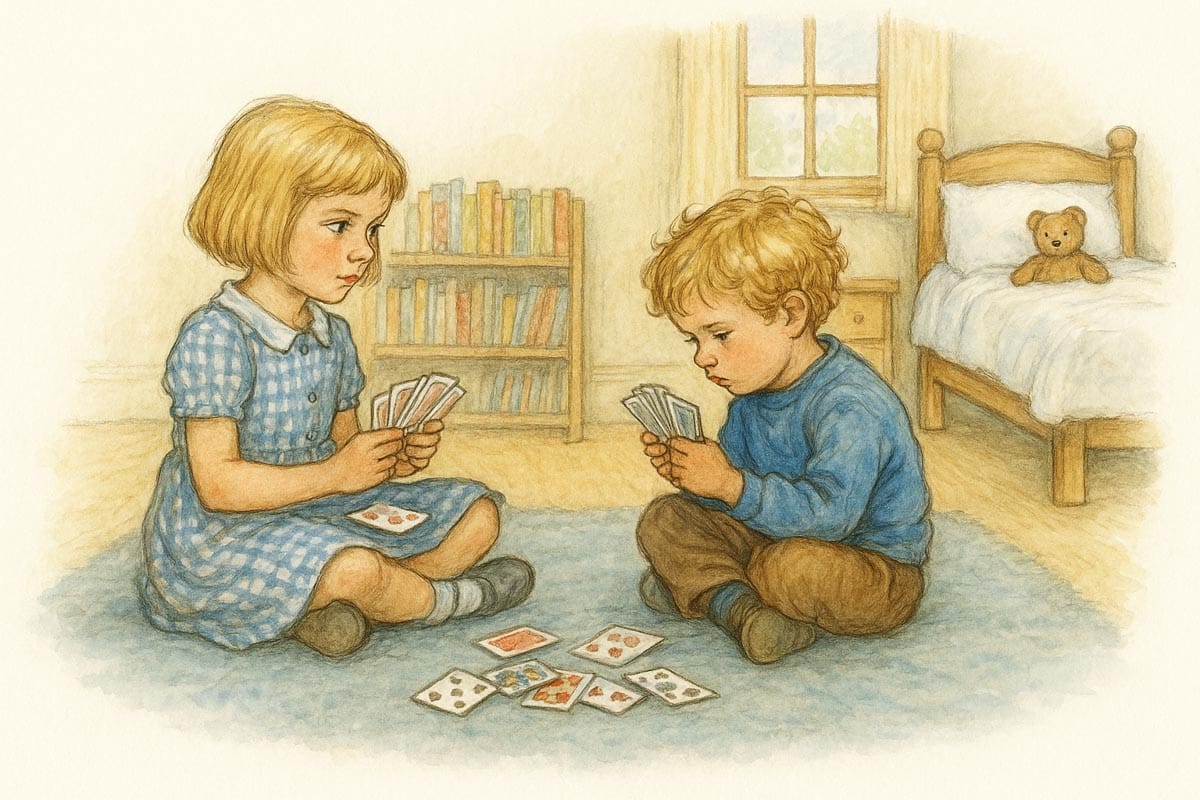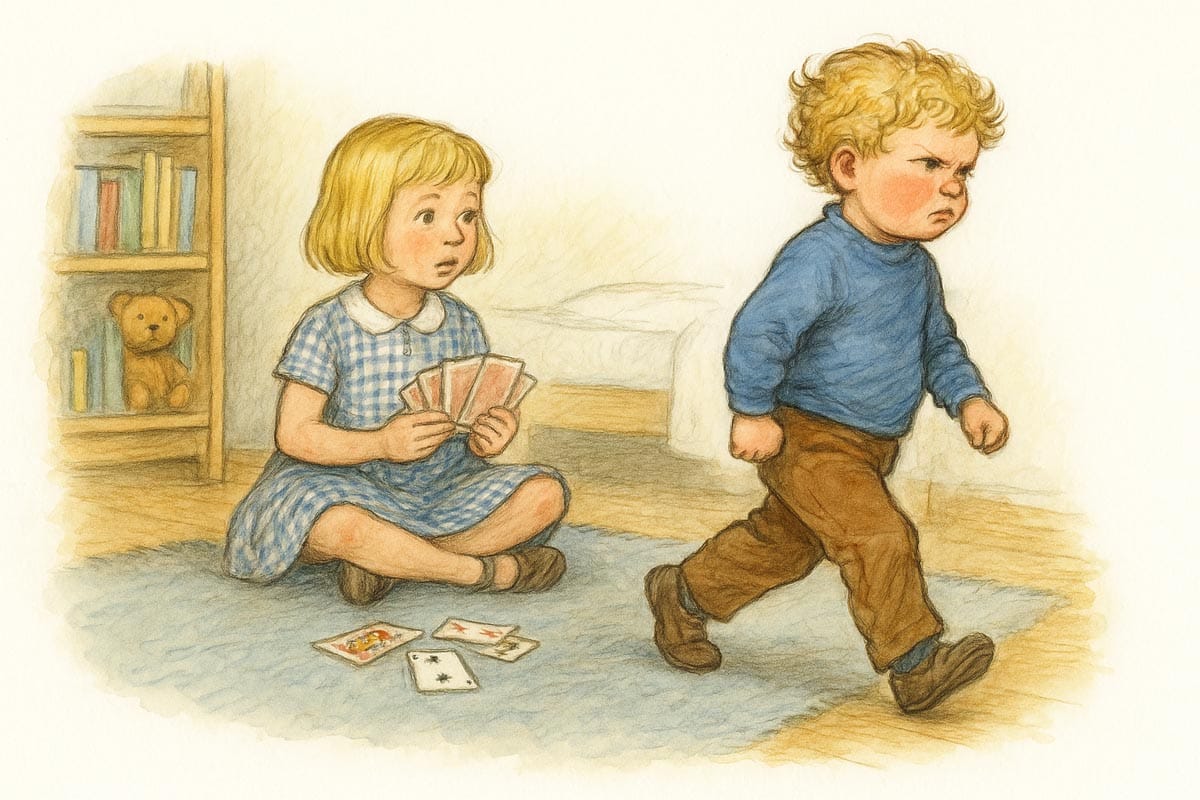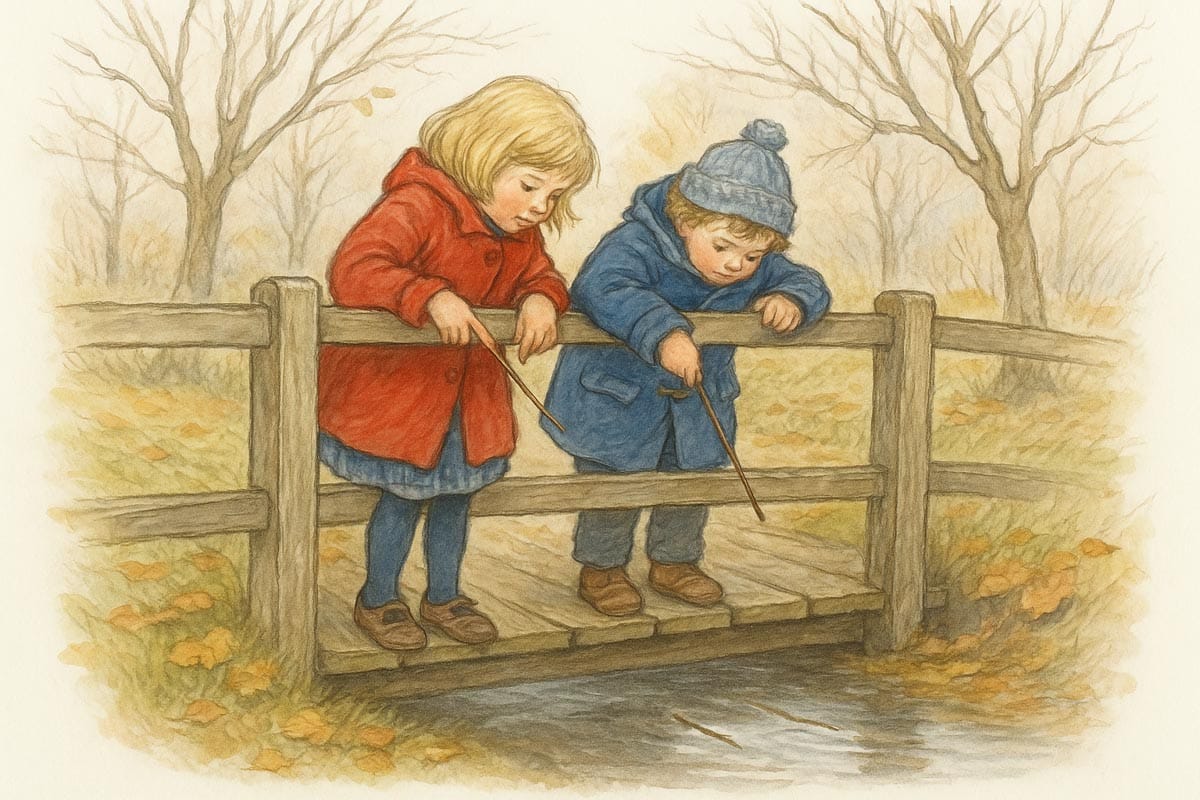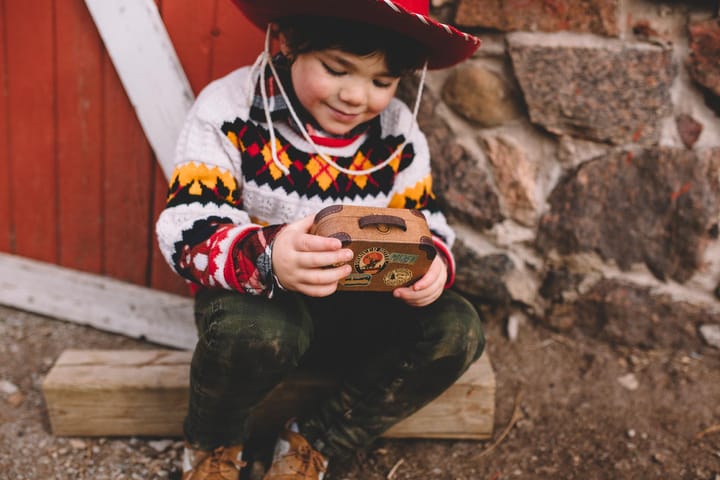Games with rules
Get ready for school - and for life - by learning how to win - and how to lose.

When children become the keepers of fair play
Alice stands at the edge of the meadow, arms folded, frowning at a row of overturned buckets.
They're meant to be hurdles. But Sam keeps knocking them over on purpose, laughing as he runs through them instead of jumping.
"It's not fair," Alice sighs. "The younger children always mess it up."
Her friend Leila shrugs. "Then make a new rule. Maybe the little ones get a head start?"
"Okay. But Sam doesn't, because he's my brother."
By the time they've finished laying out the obstacle course for next week's sports day, they've rewritten the rules three times. What began as a simple race has turned into a layered negotiation: Who gets a head start? What counts as jumping? And what happens if someone cheats?
They don't know it, but they're doing something deeply important. They're not just getting ready for sports day: they're learning what it means to be fair.
Later that afternoon, Alice sits cross-legged on her bedroom carpet, a pack of cards scattered between her and Sam.
"You can't look at my cards!" she declares, then immediately peers over at his hand.
"But you just looked at mine," Sam protests.
Alice pauses. Her face scrunches in concentration. "Okay," she says slowly, "new rule. No one looks. But if someone looks by accident, they have to give the other person one of their cards."
And so the first Go Fish 'house rule' is created. And in doing so, she has discovered something profound about fairness, negotiation, and the delicate art of living with other people.
What are games with rules?
Open any box of Monopoly or Scrabble and you'll find a set of rules.
But there are also rules for hopscotch and What's the time, Mr. Wolf? No-one has written them down but we know them all the same.
There are even rules when you play dressing up. These 'situational' rules are made up by the players as they go along. They can be anything at all, no matter how ridiculous, as long as everyone agrees. "I'm the king and you're the peasants. If you forget to bow to me, I chop off your head. Last one alive gets to marry the princess."
No-one wants to play a game with a rule-breaker. Chaos reigns and the fun stops. So children are very good at keeping score. Not just in the game but how the players behaved.
And they don't forget.
"Everybody knows how you play is who you are"
So sings Bruce Hornsby in The Old Playground.
And it's true.
How people play games is a window onto their character.
Which means I probably shouldn't go into the trenches with my uncle because he is a bad loser.
It's Christmas Day. We're playing our annual family game of Risk, and I'm on course for victory. My armies are sweeping across the board. Europe, Africa and now into Asia. But my uncle has other plans. His three young sons are in the game.
"Boys. If you each give me your armies, I'll buy you some chocolate on the way home."
Yes, a grown man really said this.
Against such reinforcements, my advance is slowed. But I'm fighting the good fight and lady luck keeps rolling me double sixes. Checkmate, Uncle.
Rather than allowing me to strike the winning blow, this villain kicks over the board.
Kicks. Over. The. Board.
Games with rules are hard
Unlike the free-flowing play of early childhood, games with rules present your child with a series of questions that she has to consider as she plays: What are the rules? What is my strategy? What will my opponent do? Should I go easier on her because she is younger than me?
It's a complete workout for her executive functions:
- Working memory. To keep the rules in mind, remember whose turn it is, and track what's happened so far.
- Cognitive flexibility. To adapt when your opponent does something unexpected.
- Inhibitory control. To resist the urge to cheat, blurt out the answer, or give up when frustrated. This self control sits at the heart of matters. Research shows us that younger players understand fairness in the abstract - they can divide toys equally between friends - but as soon as they stand to gain personally, fairness becomes much more of a challenge!
This is why children who regularly play rule-based games often show improvements in school readiness, social skills, and emotional regulation. They're practising the mental skills needed for everything from following classroom routines to navigating friendships.
But there's a crucial difference between adult-directed games and child-led rule-making. When children create their own games, they're not just following rules - they're grappling with the fundamental questions of how humans live together fairly.

The uncomfortable truth about "failed" games
Most rule-based games with children end in tears, arguments, or abandoned play. And that's exactly as it should be.
The most important learning often happens when things don't go to plan.
As a child, I remember many kickabouts in the park being ruined when a friend, unsportingly, took umbrage at a decision: "That's it! I'm taking my ball and I'm going home!"
What to do?
Flatter his ego and cajole him into returning (even though we all knew he was wrong) just so we could carry on playing? Or let him flounce off and ban him from the next match but spoil our fun in the process?
Is there a more important decision you'll make in your whole life?
The rules we create, the rules we insist on, become who we are.
Will you be conciliatory or firm, relaxed or pernickety?
You choose.
As parents, our instinct is often to step in and "fix" these moments. We want to explain the proper rules, mediate the argument, or suggest a different game. But children learn more from working through these challenges themselves than from having adults smooth the way.
This doesn't mean abandoning them to chaos. Instead, try becoming a calm witness to their problem-solving. "I can see you're both frustrated about the rules. What are some ways you could figure this out?"

This week in Elmwood
What the children are playing - and why it matters
At school, skipping ropes and chalk lines have reappeared. The older girls are playing Elastics, making up chants as they go. A game of Stuck in the Mud breaks down when no one can agree how to get 'unstuck'. After a heated exchange, someone proposes a new rule: "If you do five jumping jacks, you're free."
By the brook, Alice and Sam stop at the bridge on their way home to play Poohsticks. Alice insists the sticks must be the same size. Sam suggests a best-of-three rule. "Only if I win two!" Alice laughs.
Practical approaches that actually work
Environmental nudges
Make it the easy and obvious choice. This is advice you'll hear me give all the time. A new game - or the return of a much-loved old one - left in a prominent position is often all that's needed to encourage play. Even better, if you have the time for it, schedule weekly game time. Saturday afternoon after a walk on the common, while we're waiting for the sandwich toaster to heat up is our time for a game of Cluedo.
Cooperative before competitive
Start with games where everyone wins or loses together. Peaceable Kingdom's 'non-competitive board games', like Gnomes at Night and Dinosaur Escape, build the skills needed for competitive play without the emotional intensity of winning and losing.
The "house rules" record
Add a post-it inside each board game's instruction booklet. This is for 'House rules'. Does everyone agree that you should be able to buy properties straight away in Monopoly rather that going round the board first? Add it to the house rules.
Our children learn that rules are important but that they can campaign to change bad ones. What a great lesson for life!
This week: The seven-day game challenge
Your mission: introduce one new rule-based game every day for seven days. Not complicated games - simple ones that reveal how your child's mind works when faced with structure and choice.
- Day 1-2: Board games or card games - Start with something age-appropriate you already own. Try Snap, Go Fish, Uno, or simple card games like Higher or Lower. For board games: Ludo, Snakes and Ladders, or Draughts work well.
- Day 3-4: Playground classics adapted for home - Tag becomes "Floor is Lava" (can't touch the ground). Hide-and-seek works with just two players. Try "Grandmother's Footsteps" in the hallway, or "Red Light, Green Light" in the garden.
- Day 5-6: Invented games with specific examples - "Sock Basketball" (throwing paired socks into laundry baskets with scoring rules). "Kitchen Utensil Bowling" (rolling balls to knock down plastic containers). "Cushion Castle" (building rules: only 3 cushions each, must stay up for 30 seconds to win).
- Day 7: Proper solo rule-based games - Classic Solitaire (Patience), Freecell if she's older, or simple jigsaw puzzles with self-imposed rules (edge pieces first, or complete one section before starting another). These games have genuine structure and require following established rules even when alone.
The big picture
If there's one thing I want you to take from Screen-Free Saturdays, it's that your child has to get comfortable with boredom. It's the spring from which all creativity flows.
Creativity leads to new games. And new games need rules.
It's not enough to make your own fun. You have to have the self control to stick with it when things get tough and the skill to bring others along for the ride.
Final word
In my house, we are through the toddler years. Even the preschool days are in the rearview mirror.
This is the age of bickering.
Because all they care about is fairness.
They keep score.
They take revenge.
It can get ugly. But with each dispute, they get better at negotiating. They agree rules amongst themselves for who gets to hold the television control and when, or whose turn it is to get a bedtime story from Daddy. The rules become increasingly sophisticated. They learn to see the world through each other's eyes. They still argue, but it's getting better, and I'm amazed at how they can pause in the middle of a fight, take a deep breath and say, "I can see where you're coming from." They then go on to restate the other's position and make the argument from their perspective.
It's a genuine attempt to resolve the dispute.
And they couldn't have done it without lots of practice playing games with rules.


Comments ()